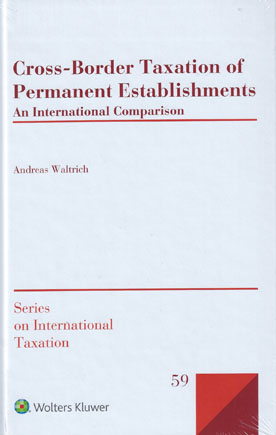
Cross-Border Taxation of Permanent Establishments illustrates and compares the OECD Model Tax Convention with country-specific source taxation rules.
The permanent establishment (PE) is a legal form of cross-border direct investment whereby a business presence is maintained as an integral part of the foreign investor. Due to the growing intensity and complexity of international business relations, the allocation of profits to head units and PEs has become highly contentious, especially from the perspectives of the major emerging economies of the BRIC (Brazil, Russia, India, and China) countries.
Unsurprisingly, the potential for tax avoidance and the scrutiny of tax authorities have increased enormously. Against this background, this work emphasizes the taxable implications of the various rules upon country-specific PE concepts focusing on possible tax system changes and offering reform proposals.
What’s in this book:
The book’s analysis covers such issues and topics as the following:
How this will help you:
The author’s deeply informed proposals provide much-needed guidance in tax criteria and open the way to greater feasibility and transparency in taxation of cross-border direct investment, including evaluation of PE risk. As the definition of PEs has become more extensive and the treatment of profit allocation has become more complex, the clarification of the PE concept presented in this book is of inestimable importance for lawyers, officials, policymakers, and academics concerned with international business taxation in any jurisdiction.